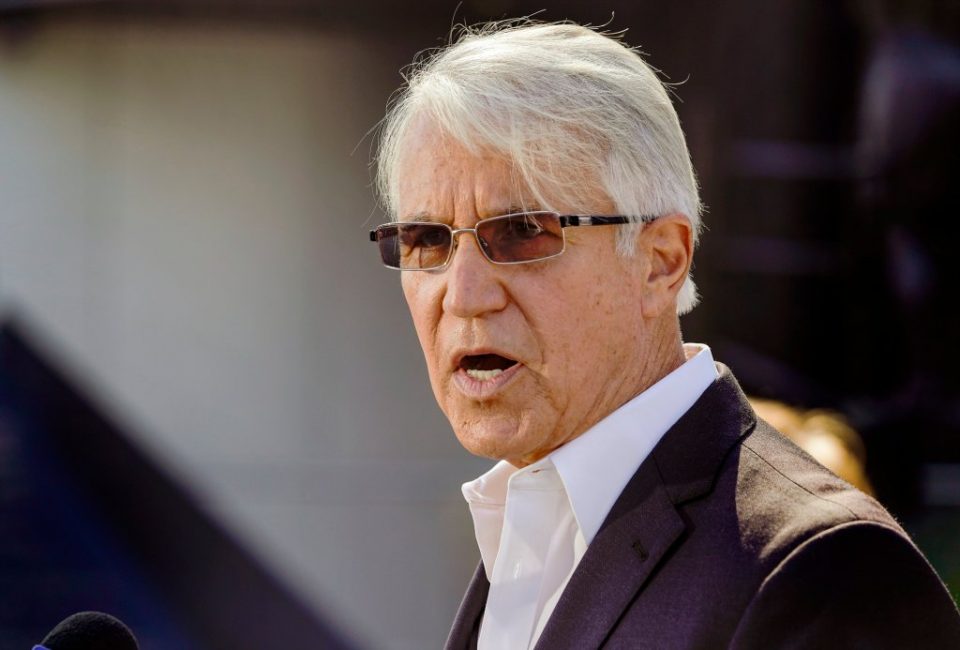The starkest aspect to California’s evolution from a relatively conservative state into a blue bastion has been an evolving attitude toward crime and punishment.
In the 1980s and 1990s, California became a national leader in increasing penalties for crimes large and small, symbolized by a three-strikes-and-you’re-out law calling for life imprisonment of repeat offenders. Not surprisingly, despite construction of many new prisons, they became horrendously overcrowded with inmates.
However, as California made its almost 180-degree political turn to the left over the last couple of decades, attitudes about crime also evolved, culminating in legislative acts, ballot measures and administrative policies that repealed or softened the state’s sentencing laws. The number of felons locked up in state prisons has dropped by at least one-third in recent years.
That said, what supporters call “criminal justice reform” is not universally accepted. Some law enforcement officials believe it’s gone too far and has contributed to recent upticks in violent crime — a conflict now rippling through the state’s local district attorneys.
In 2020, George Gascón, who had been district attorney of San Francisco, challenged and defeated Los Angeles District Attorney Jackie Lacey and immediately issued new operational rules that downplayed punishment.
He prohibited his deputies from seeking the death penalty, prosecuting juveniles as adults, attending parole hearings or seeking “enhancements” that increase a defendant’s prison term. The union representing those deputies sued, alleging that Gascón was ordering them to violate criminal laws, and won an initial judgement.
What really blew up the conflict politically was support from the California District Attorneys Association (CDAA) for the union position. In its supporting brief, the District Attorneys said Gascón’s orders meant that “the voices of victims fall silent and the might of the state has failed its most vulnerable.”
Last week, Gascón resigned from the organization with a two-page letter that he posted on Twitter, accusing the association of being racially insensitive, closed-minded about criminal justice reform and even corrupt.
“CDAA continues to be a member organization solely for those willing to toe the ‘tough on crime’ line,” Gascón wrote. “For the rest of us, it is a place that fails to support us, our communities, or the pursuit of justice.”
Gascón and several other like-minded district attorneys have founded their own group, the Prosecutors Alliance of California, to push for criminal justice reforms. It includes Gascón, San Joaquin County’s Tori Salazar, Chesa Boudin of San Francisco and Contra Costa County’s Diana Becton.
Gascón’s election and the burgeoning conflict with more traditional prosecutors is part of a larger phenomenon — a nationwide effort by left-of-center organizations to change criminal justice policies one election at a time.
Billionaire businessman George Soros is a major figure in the campaign, having donated millions of dollars to reform-minded candidates. The movement has scored some victories, such as Gascón’s election, and also suffered some losses, such as a failed challenge to Sacramento County District Attorney Anne Marie Schubert.
The conflict also colors Gov. Gavin Newsom’s selection of a replacement for Attorney General Xavier Becerra if he is confirmed as the federal health and human services secretary.
Newsom seemingly supports the criminal justice reform movement. He sponsored a ballot measure to make marijuana legal, has sped up reductions in prison populations and declared a moratorium on executions.
He could appoint a new Attorney General sympathetic to the Gascón-led faction, such as Oakland Assemblyman Rob Bonta, but such a move would carry some political risk. Were Newsom to face a recall election this year, as seems likely, opposition from police and prosecutors could be a critical factor.
CalMatters is a public interest journalism venture committed to explaining how California’s state Capitol works and why it matters. For more stories by Dan Walters, go to calmatters.org/commentary


